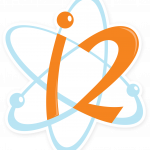Not-for-profit organization i2 Learning administered professional development workshops in Attleboro, Everett, Peabody, Methuen and Westfield, made possible in part by $50,000 in MLSC funding
Waltham—Through a partnership between the Massachusetts  Life Sciences Center (MLSC) and not-for-profit organization, i2 Learning, 240 middle school teachers in the Gateway Cities of Attleboro, Everett, Peabody, Methuen and Westfield, will facilitate a course during Massachusetts STEM Week 2019. Ahead of STEM Week, taking place October 21-25, these educators completed two days of professional development workshops in hands-on, project-based learning in STEM courses, ranging from Kinetic Sculpture to Urban Farming and Surgical Techniques. The MLSC provided $50,000 in support of the professional development workshops administered by i2 Learning.
Life Sciences Center (MLSC) and not-for-profit organization, i2 Learning, 240 middle school teachers in the Gateway Cities of Attleboro, Everett, Peabody, Methuen and Westfield, will facilitate a course during Massachusetts STEM Week 2019. Ahead of STEM Week, taking place October 21-25, these educators completed two days of professional development workshops in hands-on, project-based learning in STEM courses, ranging from Kinetic Sculpture to Urban Farming and Surgical Techniques. The MLSC provided $50,000 in support of the professional development workshops administered by i2 Learning.
“We are excited to continue our partnership with i2 Learning, a not-for-profit dedicated to reimagining how children should be educated in our changing world,” said MLSC President and CEO Travis McCready. “Across our gateway communities, educators are inspiring young people who hold the key to our Commonwealth remaining home to the most robust talent pool in the country.”
Established in 2012, i2 Learning has collaborated with more than 20 of the world’s leading STEM organizations to develop a series of project-based STEM courses in topics not traditionally found in middle school. The organization trained upwards of 300 Boston teachers who worked with almost 6,000 students in 36 middle schools during the inaugural Boston STEM Week in October 2016 and partnered with the STEM Advisory Council to launch the inaugural Massachusetts STEM Week last year. During STEM Week 2018, i2 expanded on their successful training and curriculum for Boston middle schools to schools in the Berkshires, Holyoke, Sutton, Marlborough, Natick and Framingham.
“Together with our partners, i2 Leaning remains committed to ensuring access to our innovative programming for students of all backgrounds and abilities specifically, populations typically underrepresented in STEM-related fields of study and careers,” said i2 Learning Founder Ethan Berman. “We are grateful for MLSC’s financial support and partnership to improve the educational prospects of students who deserve to thrive in the STEM-based economy of the future.”
i2 Learning has been able to provide teacher training, materials, equipment and online support at no cost to partner schools thanks to the generous support from corporate sponsors, local foundations, and the MLSC, which has also previously provided more than $222,000 to support i2 Learning activities at 18 middle schools during its Boston STEM Week efforts.
Massachusetts STEM Week 2019 takes place from October 21 to 25 (inclusive of the weekends before and after), and is organized by the Executive Office of Education and the STEM Advisory Council in partnership with the state’s 9 Regional STEM Networks. It is a statewide effort to boost the interest, awareness and ability for all learners to envision themselves in STEM education and employment opportunities, and complement the formal instruction happening in the Commonwealth beyond STEM week.
The theme for the second annual statewide STEM Week is “See Yourself in STEM.” Women, people of color, first-generation students, low-income individuals, English language learners, and people with disabilities are underrepresented in STEM industries and make up an increasing portion of the overall workforce, but the demographics of STEM fields have remained largely the same. We need more young people to see themselves in STEM.
Last October, the inaugural statewide STEM Week was a huge success with more than 500 events that impacted over 10,000 learners in every corner of the Commonwealth. Schools, non-profit organizations, colleges, museums, and business partners all participated in hosting and organizing STEM Week events for students ranging from preschool to college to adult.
Since 2011, the MLSC has awarded nearly $18 million in STEM equipment and professional development funding to 191 public high schools and middle schools located throughout Massachusetts. The grants have enabled vocational-technical and economically disadvantaged public schools to purchase necessary lab equipment and supplies, as well as state-of-the-art tools and technology to better train and prepare students for life sciences careers. The program also offered funding to support teacher professional development related to curriculum implementation and equipment training.
The MLSC’s STEM equipment and professional development grants have leveraged more than $1 million in matching funds from industry partners and served schools in 13 of the 14 Massachusetts counties and 24 of the 26 Gateway Cities. Fifty-eight percent of students attending eligible schools have gained access to new equipment through this funding. Twenty-eight percent of all Massachusetts public school students attend a school that has received an MLSC grant.
This past May, the Baker-Polito Administration and the MLSC announced $1.14 million in MLSC STEM equipment and professional development funding. Nearly 12,000 students across 36 public middle schools and high schools in the five school districts of Boston, Brockton, Lawrence, Lowell, and Springfield, will benefit from the education equity initiative.
Historically, the MLSC has provided nearly $550,000 to more than 80 middle schools and high schools to support teacher professional development. This funding ensures that all schools receiving STEM funding have teachers that are trained to use the equipment and have access to relevant curricula that deploys the equipment in labs and activities that support learning goals throughout the academic year.
About the Massachusetts Life Sciences Center
The Massachusetts Life Sciences Center (MLSC) is an economic development investment agency dedicated to supporting the growth and development of the life sciences in Massachusetts, home to the most verdant and productive life sciences ecosystem in the world. Through public-private funding initiatives, the MLSC supports innovation, education, research and development, commercialization, and manufacturing activities in the fields of biopharma, medical device, diagnostics and digital health. Since its creation in 2007, the MLSC has strategically deployed over $700 million in Massachusetts, through a combination of grants, loans, capital infrastructure investments, tax incentives and workforce programs. These investments have created thousands of jobs and propelled the development of new therapies, devices and scientific advancements that are improving patient health and well-being in Massachusetts and beyond.

